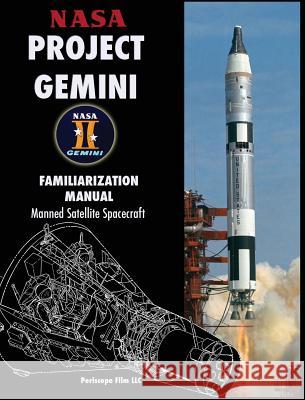NASA Project Gemini Familiarization Manual Manned Satellite Spacecraft » książka
NASA Project Gemini Familiarization Manual Manned Satellite Spacecraft
ISBN-13: 9781940453453 / Angielski / Twarda / 2011 / 584 str.
NASA Project Gemini Familiarization Manual Manned Satellite Spacecraft
ISBN-13: 9781940453453 / Angielski / Twarda / 2011 / 584 str.
(netto: 203,10 VAT: 5%)
Najniższa cena z 30 dni: 209,73
ok. 16-18 dni roboczych.
Darmowa dostawa!
Just ten days after Alan Shepard Jr. became America's first man in space on May 5, 1961, President John F. Kennedy challenged the nation, suggesting that the United States should land a man on the moon by the end of the decade. The ambitious goal of Project Apollo required a series of intermediate steps, which were to be explored by Project Gemini. Created on January 3, 1962, Project Gemini's objectives were many. During ten manned flights in 1965 and 1966, astronauts would perform spacewalks, rendezvous with orbiting vehicles using maneuvering and propulsion systems, and perform docking tests. A great deal of experience was gained and equipment tested, and with one exception - a dry land capsule landing - all of the planned objectives were met. All ten manned flights were made using Titan II two-stage boosters that were purpose-built for Gemini and known as "GLV" or Gemini-Titans. The prime contractor for the Mercury capsule McDonnell Aircraft, constructed the two-man Gemini capsule. A larger, more sophisticated spacecraft than Mercury, the Gemini capsule relied on a detachable Equipment Module for power, propulsion, and life-support systems. The capsule itself was outfitted with ejection seats, carried an on-board Guidance Computer, and could be flown in six directions. Created by NASA and contractor McDonnell Aircraft, this Familiarization Manual explains all the systems aboard the Mercury space capsule including cabin controls, sequence, electrical power, cooling, guidance and control, communications, retrograde rocket, and landing systems and procedures. Dating from September of 1965 for the long range and extended missions, it represents a late revision of documents created at the beginning of the Gemini program. Originally restricted, this manual has been declassified and is presented in its entirety, running nearly 600 pages.











